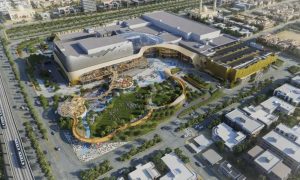Saudi house sales down 5%, rentals up
Residential property market is shifting, says JLL

Saudi Arabia saw 5% fewer property sale transactions in the year to November, as the market shifts towards rentals, according to JLL.
Lower oil prices and reduced government spending have weighed on financing of projects, the real estate consultancy said in its annual review of the Saudi market.
“We have witnessed a shifting demand in the residential market in both Riyadh and Jeddah, as the trend moves towards property rentals from sales,” said Jamil Ghaznawi, National Director and Country Head of JLL in Saudi Arabia.
In Riyadh, approximately 17,000 units entered the market over 2015, JLL said. “While 28,000 units could potentially be completed in Riyadh during 2016, actual deliveries are likely to be significantly less,” it added.
In Jeddah, around 20,000 new units were delivered over the past year, bringing the total residential supply to around 789,000 units as of Q4 2015.
Ghaznawi said the sales market is likely to be unchanged this year, although a proposed plan to tax undeveloped plots in urban areas – the so-called “white land tax” – could have an impact.
“We expect rental demand to continue in 2016 but at a slower rate in comparison to 2015, while little or no change is likely in the sales market in 2016. However, this situation may change once the regulations surrounding the ‘white land tax’ are released,” he said.
“Lower oil prices have put pressure on economic growth, liquidity, government budgets, the stock market and asset prices. This scenario has led to cuts in subsidies and reduced government spending and has also impacted the financing of real estate projects. A more selective approach can be seen, with an increased focus on critical infrastructure and affordable housing projects. On the other hand, there is reduced spending on less urgent projects, resulting in delays or scaling back of many projects”.
Ghaznawi said that the lower oil price poses a significant challenge this year and beyond.
“We are entering a very challenging period as oil touches new lows and the government cuts spending and subsidies,” he said.
“It is encouraging to see that the government is taking steps to diversify the Saudi economy. Such structural initiatives will have long term benefits and will contribute towards the positive development of the Saudi real estate market. Moreover, new laws allowing full foreign ownership of wholesale and retail business will attract foreign investment, which will ultimately benefit the real estate market. And finally, religious tourism will remain a growth sector in Jeddah and the Western region, and could support new hospitality supply.”

























